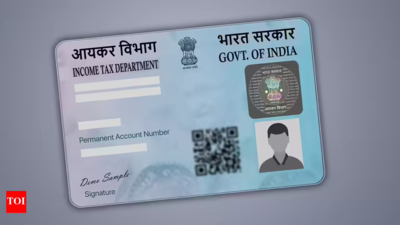Dubai real estate deals hit regulatory hurdle! Indian buyers who bought homes using international credit cards in a soup; here’s why

Indian property buyers in Dubai are facing regulatory challenges after using international credit cards (ICCs) for property purchases. They opted for this payment method through builder-shared links or during UAE visits, making down payments and instalment payments.The process appeared straightforward, avoiding bank paperwork and potentially circumventing the 20% tax-collected-at-source (TCS). However, they allegedly misused ICCs, which are designed for current account transactions like purchasing books, digital content, and hotel bookings, rather than capital account transactions such as property acquisition.While no explicit regulation prohibits ICC usage for overseas property purchases, banking professionals interpret RBI notifications as restrictive of such practices.Also read: Foreign inflows hit 7-month high in primary market with $1.7 billion in July; secondary market sees sharp outflowsTo address scrutiny from income tax and enforcement authorities, these investors are pursuing corrective measures. They plan to remit funds through RBI’s Liberalised Remittance Scheme (LRS), while cancelling previous credit card transactions, citing error. Subsequently, they expect refunds from builders, failing which property disposal becomes necessary.“Indian residents who have unintentionally paid money through credit card for purchase of property outside India need to approach RBI to regularise their mode of payment. RBI should take a lenient view as the money paid through credit card is a legitimate payment and only the mode of payment was wrong. The regulator should compound the contravention if applied for and need not ask to unwind the transaction or sell the property,” said Rajesh Shah, partner at the CA firm Jayantilal Thakkar & Co, as quoted by news agency PTI.While compounding requires accepting violation and paying fines, some buyers prefer discretion, quietly cancelling credit card transactions.The LRS permits resident individuals annual transfers of $250,000 for overseas assets and online purchases. ICC usage within India for foreign purchases counts towards LRS limits, whilst overseas travel expenses are exempt. Property purchases via ICC remain non-compliant, regardless of transaction location.RBI’s LRS circular specifies maintaining bank accounts for minimum one year before capital account remittances.According to Moin Ladha, partner at the law firm Khaitan & Co, quoted by ET, “Purchase of property overseas is permitted specifically under Foreign Exchange Management (Overseas Investment) Rules, 2022. These rules prescribe the mode and conditions permitting such acquisition, which include inheritance, gift, funds in a resident foreign currency account earned as an erstwhile NRI, and remittance under the LRS. Since general permission is not available to acquire a property by using an ICC, any such acquisitions need to be regularised (by a post facto approval or sale of the property) followed by compounding the interim non-compliance with RBI.”Property purchases abroad remain subject to 20% TCS under section 206C(1G)(a) of the I-T Act, regardless of RBI’s stance on transactions, notes Ashish Karundia, founder of Ashish Karundia & Co.





